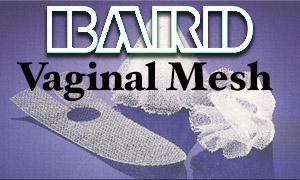Did You Have a revision surgery for your hernia mesh implant?
Patients who received a hernia mesh implant that had complications and required a revision surgery may be entitled to compensation. If you were effected by hernia mesh, fill out the form today for a FREE hernia mesh lawsuit claim review.

Start My Hernia Mesh Claim Now
Hernia Mesh Lawsuit
Ethicon’s Physiomesh and other potentially harmful hernia mesh devices have been linked to an increased risk of mesh erosion, mesh infection, hernia recurrence and other serious complications.
Mesh Alternatives for Hernia Repair
Long before hernia mesh was introduced to the market, surgeons repaired hernias using the shouldice technique, which originated at the Shouldice Hospital in Ontario, Canada, and is “internationally recognized as one of the safest and most effective techniques for repairing hernias.” The shouldice technique involves placing the fatty tissue and any part of the intestine that may have protruded through the abdominal wall back into position, and then reinforcing the damaged section of the abdomen by repairing each muscle layer individually. For more than 70 years, the Shouldice Hospital has maintained a success rate of 99.5% on primary inguinal hernia repairs using this technique. In some cases, “watchful waiting” may also be a good option for individuals with hernias, especially in instances where the hernia isn’t extremely large or painful. In a 2012 Reuters article, researchers compared “short- and long-term outcomes in men with symptom-free hernias who were randomly assigned to get surgery right away or take a more conservation [watchful waiting] approach.” According to the article, “The main advantage of delaying is that you might permanently avoid this painful operation,” which can result in serious complications like infection and chronic pain.What is Hernia Mesh?
Hernia mesh is a type of medical device that is commonly used in patients with a hernia, a condition in which an organ, intestine or fatty tissue protrudes through a hole or weak spot in the surrounding muscle or connective tissue, usually in the abdominal wall. There are many different types of mesh products on the market, but most surgeons use a sterile, woven material made from a synthetic plastic-like material called polypropylene that is surgically implanted over the hernia defect as a “patch,” to close the opening in the muscle and connective tissue, and fix it in place with sutures and/or staples. This type of hernia repair relies on scar tissue to grow into the mesh, a flexible material that stays in the abdomen, and thereby reinforce the abdominal wall.
Ethicon Physiomesh Flexible Composite Hernia Mesh
Many hernia mesh products contain the synthetic material polypropylene, which can cause damage to the surface of any organ it comes in contact with, and so mesh manufacturing companies began to apply various types of coating to their mesh products, known as composite mesh, indicating that the coating would provide a layer of protection between the bowel and the polypropylene. Ethicon’s Physiomesh is one of these composite hernia mesh products, and the medical device was removed from the market in May 2016, due to a high rate of complications, including recurrent hernias and the need for multiple revision surgeries in patients. Prior to removing Physiomesh from the market, Ethicon introduced a modified version of its hernia mesh called Physiomesh Open Flexible Composite Mesh.
Possible Complications Leading to a Hernia Mesh Lawsuit
Hernia mesh is marketed by companies like Johnson & Johnson’s Ethicon subsidiary as a means of repairing a hernia with better patient outcomes, decreased operative time, and minimized recovery time. However, surgical repair of a hernia with mesh has been associated with a range of serious and potentially life-threatening complications over the years, including the following:
- Mesh erosion
- Mesh infection
- Mesh migration
- Mesh shrinkage
- Bowel obstruction
- Chronic pain
- Hernia recurrence
- Scar-like tissue that sticks together (adhesion)
- Bleeding
- Organ perforation
- Abnormal connection between organs, intestines or vessels (fistula)
- Fluid build-up at the surgical site (seroma)
Unfortunately, hernias are extremely difficult to permanently repair, and with any hernia surgery, the chance of recurrence is high. In cases where mesh is used to repair the hernia though, a hernia recurrence means the mesh has failed, and removing the mesh sometimes requires that the abdominal tissue and muscle that has adhered to the mesh be removed with it. In some cases, the hernia mesh may erode into the bowel or cause an infection, resulting in the need for multiple revision surgeries and partial bowel removal, among other complications.
Link Between Hernia Mesh and Side Effects
The potential for certain hernia mesh products to cause serious side effects in users is believed to be due, at least in part, to their use of polypropylene, a material that is also used in many bladder slings and surgical mesh devices. In lawsuits filed against the makers of polypropylene-containing transvaginal mesh products, plaintiffs claim that the material is “biologically incompatible with human tissue,” and in a Materials Data Safety Sheet (MSDS) published by polypropylene manufacturer Lyondellbasell, it specifically states that prohibited uses of the material include “applications involving permanent implantation in the body.”
In May 2016, J&J’s Ethicon subsidiary removed one of its hernia mesh products from the market, after studies showed a higher rate of revision surgery in patients implanted with its Physiomesh Flexible Composite Mesh. The company attributed the higher revision rates to a “multifactorial issue,” possibly including “product characteristics, operative and patient factors,” but has yet to report a definite cause. Unfortunately, the FDA continues to approve hernia mesh products that have not been adequately tested through its controversial 510(k) approval process, which increases the risk of patients suffering serious and potentially life-threatening injuries.
Lawsuits Against Hernia Mesh for Erosion, Infection and Other Injuries
April 2016 – Matthew Huff of Illinois files a Physiomesh lawsuit against Ethicon, after being implanted with the device in 2013, to repair a ventral hernia. In July 2015, Huff exhibited severe abdominal pain, chills, fever and nausea, and was treated for an infection, an intestinal fistula and two abscesses.
September 2016 – Joanne Quinn files a complaint against Ethicon and Johnson & Johnson, alleging that Physiomesh hernia mesh is defective and caused her to suffer persistent abdominal pain, bowel obstruction and diminished bowel motility.
January 2018 – The first Physiomesh jury trial is set to appear before Judge J. Phil Gilbert in the Southern District of Illinois.
FDA, Hernia Mesh and Side Effects
April 2010 – The FDA approves Ethicon’s Physiomesh Flexible Composite Mesh through its 510(k) approval program, based on the device being “substantially equivalent” to Proceed Mesh, Ultrapro hernia system and Ultrapro Mesh, all of which are manufactured by Ethicon.
2011 – A study published in the Annals of Gastroenterology reports that, “Given the popularity of minimally invasive surgery utilizing polypropylene mesh for incisional hernia repair, related complications such as postoperative hematoma and seroma, foreign body reaction, organ injury, infection, mesh rejection, and fistula are being noted.”
April 2011 – An adverse event report is submitted to the FDA, claiming that a Physiomesh device pulled away from the abdominal wall, resulting in the need for a second surgery to remove the mesh.
June 2014 – Ethicon submits a modified version of its hernia mesh product, the Physiomesh Open Flexible Composite Mesh device, for 510(k) approval from the FDA.
October 2014 – The FDA approves Ethicon’s Physiomesh Open Flexible Composite Mesh Device, but notes that “the FDA’s issuance of a substantial equivalence determination does not mean that FDA has made a determination that your device complies with other requirements of the Act or any Federal statutes and regulations administered by other Federal agencies.”
October 2014 – The FDA issues a safety communication warning about “complications that may occur with the surgical mesh that is sometimes used to repair hernias,” including “adverse reactions to the mesh, adhesions (when the loops of the intestines adhere to each other or the mesh), and injuries to nearby organs, nerves or blood vessels.”
May 2016 – Ethicon withdraws its Physiomesh device from the market, indicating that “the recurrence/reoperation rates after laparoscopic ventral hernia repair using Ethicon Physiomesh Composite Mesh were higher than the average rates of the comparator set of meshes among patients in [two large independent hernia registries].”
Hernia Mesh Side Effect Studies
August 2011 – In a study published in the journal Hernia, researchers note, “We have seen several patients with serious late complications of these [composite] meshes placed intraperitoneally. Some of these patients needed small bowel resection and mesh removal.”
August 2012 – The journal Surgical Infections publishes research indicating that polypropylene is “characterized by high tensile strength and vigorous tissue ingrowth, but is unsuitable for intra-abdominal placement because of its tendency to induce bowel adhesions.”
October 2013 – A study published in JSLS: Journal of the Society of Laparoendoscopic Surgeons compares the outcomes of five animals implanted with Physiomesh and five implanted with Ventralight mesh. According to their findings, the Physiomesh animals experienced significantly higher rates of inflammation, hemorrhage and fibrosis.
October 2013 – Researchers discuss the complications associated with polypropylene mesh for laparoscopic hernia repair, and note that “even a composite mesh can have complications.”
May 2014 – Researchers compare 637 hernia mesh repairs and 1,145 suture repairs, reporting that hernia mesh repair is associated with a slightly lower rate of hernia recurrence, but a higher rate of severe complications, like seroma and surgical site infection.
October 2014 – The Journal of the Mechanical Behavior of Biomedical Materials publishes a report suggesting that hernia mesh products are often used as if they are uniform and interchangeable, which they are not. The researchers also note that, had Ethicon provided additional instructions and training for implanting surgeons, more successful hernia repairs could have been performed.
August 2015 – Research published in the journal Surgical Endoscopy associates Physiomesh with significantly lower incorporation strengths than the two other hernia mesh products studied. The researchers also observe fractioning of the Physiomesh coating over time, which led to “an increase in interfilamentary granuloma formation, leading to scar plate formation.”
August 2015 – Research published in the Journal of the American College of Surgeons indicates that, out of 768 patients who underwent hernia pair, 10% experienced a hernia mesh infection. The study also indicates that 33% of patients with a preoperative MRSA+ infection experienced a hernia mesh infection.
March 2016 – The journal Surgical Endoscopy publishes a study comparing the outcomes of 25 patients implanted with Physiomesh and 25 patients implanted with Ventralight hernia mesh. Within six months of implantation, 20% of patients implanted with Physiomesh suffered a hernia recurrence, compared to 0% of those implanted with Ventralight mesh.
April 2016 – The FDA releases an article on hernia surgical mesh implants, indicating that “many complications related to hernia repair with surgical mesh that have been reported to the FDA have been associated with recalled mesh products that are no longer on the market.”
May 2016 – A review of unpublished data from a pair of European registries in Germany and Denmark shows higher revision rates with Physiomesh flexible composite mesh, compared to other meshes used for laparoscopic ventral hernia repair.
August 2016 – A study published in the medical journal Hernia reports that Ethicon’s Physiomesh device is associated with the development of more seromas and less tissue integration that other hernia mesh products.
August 2016 – Researchers follow 632 patients for two years after being implanted with hernia mesh, and report that 31% experienced complications like necrosis, cellulitis, seroma, hematoma and fistula within two years.
August 2016 – A study published in the Journal of Oral Microbiology examines 36 patients with failed hernia mesh, and finds infected gums and teeth in 33% of the patients, and gingivitis in all of them.
Product Liability Lawsuit Info

Start My Hernia Mesh Lawsuit Claim Now

What should you do? If you have suffered a side effect like mesh erosion or infection, you should contact a lawyer as soon as possible to discuss filing a hernia mesh lawsuit.
Start Your Claim Now!
Hundreds of thousands of hernia repair operations are performed every year, both with and without surgical mesh, and many of these operations are completed without any complications. Unfortunately, more and more patients whose hernias have been repaired with synthetic mesh are experiencing serious side effects, like mesh erosion, mesh infection, bowel blockage, hernia recurrence, and the need for revision surgery, and in many cases, these complications may take months or even years to arise. If you believe you have been adversely affected by side effects of hernia mesh, consult an experienced hernia mesh attorney as soon as possible to explore your possible compensation options. With a qualified product liability lawyer on your side, you can protect your legal rights and seek fair and timely reimbursement for your injuries.
- Fight to Get The Compensation You Deserve
- Experienced Hernia Mesh Attorneys Within Reach


